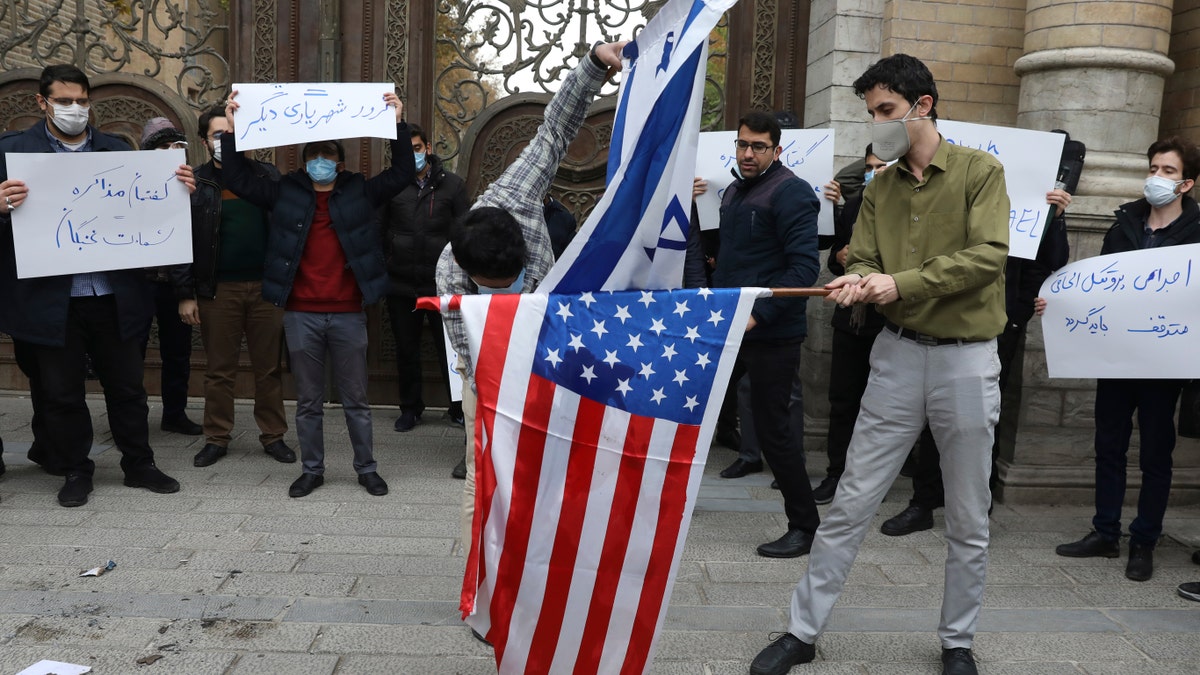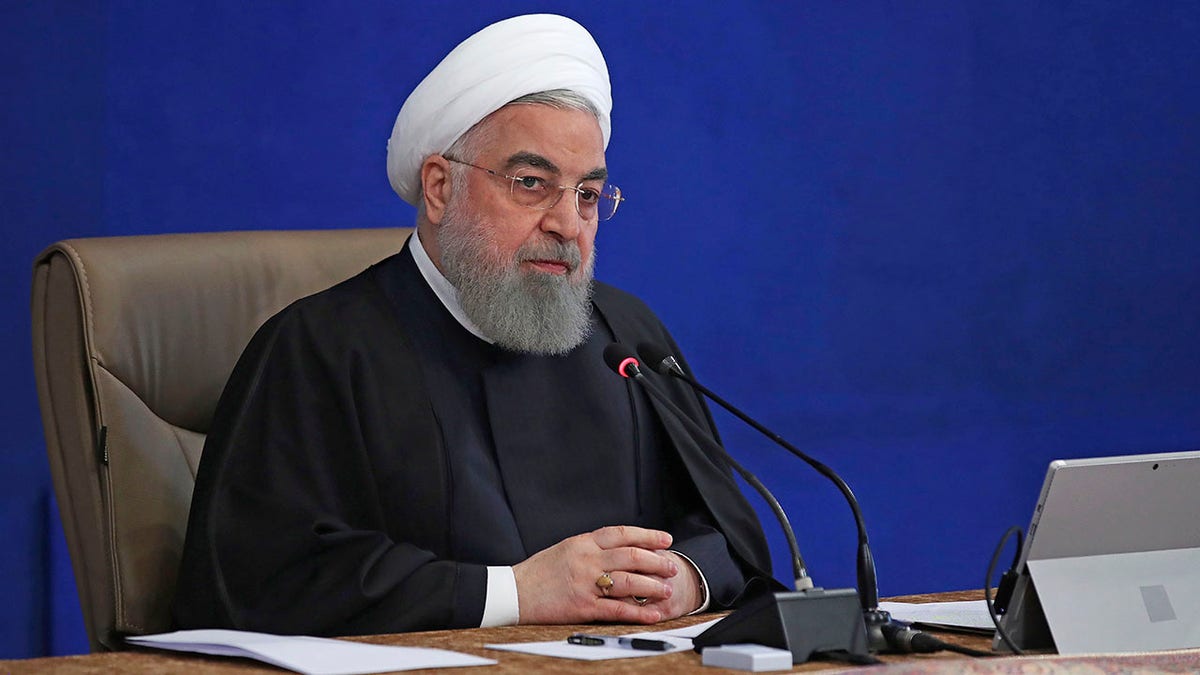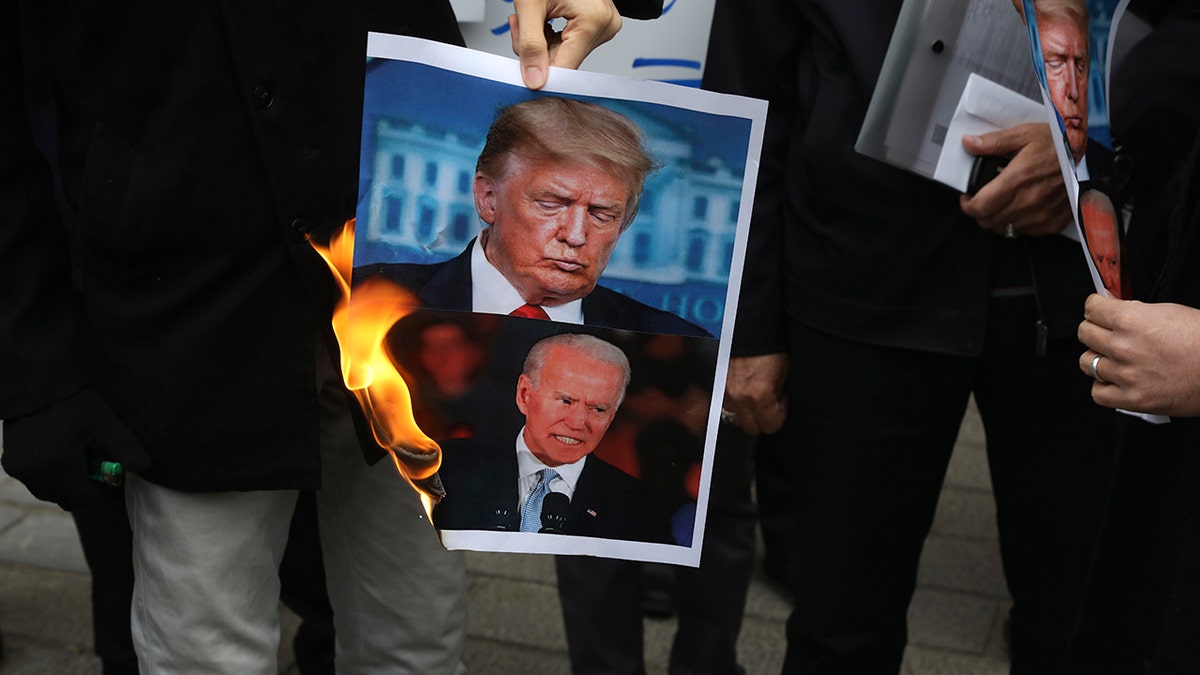Trump officials to advance maximum pressure campaign against Iran
Fox News correspondent Rich Edson has the latest on events in Middle East on 'Special Report'
Less than a week after Iran's leading nuclear scientist was assassinated on the outskirts of Tehran, the Iranian parliament has voted to increase its uranium enrichment levels and stop International Atomic Energy Agency (IAEA) inspectors from examining facilities if the next U.S. administration declines to lift hefty U.S. banking and oil sanctions by February.
Despite objections from President Hassan Rouhani, who expressed concern over diplomatic damages, the new legislation was ratified by the parliament on Wednesday, according to reports, thus paving the way for Iran to augment its uranium arsenal to levels prior to the 2015 deal.
"The criminal enemy will not feel remorse unless we show a fierce reaction," Mohammad Baqer Qalibaf, speaker of Iran's Parliament and a former commander in the Islamic Revolutionary Guards Corps touted against a chorus of "death to America" and "death to Israel" chants among the lawmakers.

Two protesters burn the representation of the U.S. and Israeli flags as the others hold placards condemning inspections by the UN nuclear agency (IAEA) on Iran's nuclear activities and the country's nuclear talks with world powers during a gathering in front of the Iranian Foreign Ministry on Saturday, Nov. 28, 2020, in Tehran. (AP Photo/Vahid Salemi)
The Iranian economy has crumbled under the weight of increasing economic sanctions, which the Trump administration has continued to impose since withdrawing from the 2015 JCPOA more than two years ago.
WHERE DOES IRAN'S NUCLEAR WEAPONS PROGRAM STAND NOW?
In contrast, President-elect Joe Biden, while on the campaign trail, advocated for a return to the Obama-era agreement in which the Islamic Republic agreed not to resume its nuclear weapons program – which was suspended in 2003 amid international remove – in exchange for the lifting of several sanctions and a return of frozen funds.
Multiple experts and analysts project that Iran will hold off on any large-scale or immediate retaliation in response to the scientist Mohsen Fakhrizadeh's slaying last Friday, in the hopes of reinvigorating better relations with the Biden White House.

President Hassan Rouhani speaks in a cabinet meeting in Tehran, Iran, Wednesday, Dec. 2, 2020. Rouhani on Wednesday rejected a bill approved by parliament that would have suspended U.N. inspections and boosted uranium enrichment, saying it was "harmful" to diplomatic efforts aimed at restoring the 2015 nuclear deal and easing U.S. sanctions. (Iranian Presidency Office via AP)
But it remains to be seen what approach the Democratic-led executive branch will take.
Iran has long vowed that it maintains a nuclear program for non weapons- related purposes, but there have been increasing red flags in recent years as to its exact agenda.
According to the most recent Institute for Science and International Security (ISIS) analysis of the IAEA Iran Verification and Monitoring Report, released in November, Iran's low enriched uranium (LEU) stock now exceeds by 12-fold the limit set in the JCPOA.
"As of November 2, 2020, Iran had a stockpile of about 3613.8 kilograms (kg) of LEU (hexafluoride mass), all enriched below 5 percent, or the equivalent of 2442.9 kg (uranium mass)," the review stated, highlighting that over the period August-November, "Iran's estimated breakout time as of early November 2020 is as short as 3.5 months."
WHAT HE KNEW: WHY IRANIAN NUCLEAR SCIENTIST MOHSEN FAKHRIZADEH WAS MARKED FOR DEATH
The theoretical "breakout" time is an estimate of how long one would need to procure enough weapons-grade uranium to produce a bomb.
"Iran now has sufficient low enriched uranium to produce enough weapons-grade uranium for a second nuclear weapon, where the second one could be produced more quickly than the first," the ISIS analysis authored by David Albright, Sarah Burkhard and Andrea Stricker continued. "Iran would require, in total, as little as 5.5 to 6 months to produce enough weapons-grade uranium for two nuclear weapons."
BIDEN WILL TRY TO REVITALIZE 'SMOKE AND MIRRORS' IRAN DEAL: KT MCFARLAND
It would likely require a year or more to weaponize that fissile material for a nuclear device, Stricker -- also a research fellow for the Foundation for Defense of Democracies (FDD) -- told Fox News this week.

A group of protesters burn pictures of the U.S. President Donald Trump, top, and the President-elect Joe Biden in a gathering in front of Iranian Foreign Ministry on Saturday, Nov. 28, 2020, a day after the killing of Mohsen Fakhrizadeh an Iranian scientist linked to the country's nuclear program by unknown assailants near Tehran. (AP Photo/Vahid Salemi)
IAEA probes this year have also found "undeclared materials and activities at two sites in Iran" -- the Tehran pilot uranium conversion plant and the Marivan site, which were part of Iran's nuclear weapons program in the early 2000s.
It is what former CIA Chief of Station Daniel Hoffman calls "nuclear blackmail."
"Basically, the Iranians are saying that we will let you in (for now), but if we don't get what we want, we can kick you out again," he surmised.
CLICK HERE TO GET THE FOX NEWS APP
But if Iran does indeed go through with banning such inspections next year, some analysts contend that propels security interests into an even darker place.
"Iran's stockpile of low-enriched uranium is now twelve times more than what is allowed under the nuclear deal, but fortunately, the U.N.'s atomic inspectors continue to have access to Iran's nuclear facilities," said Samuel Hickey, a research analyst at the Center for Arms Control and Non-Proliferation, who noted that the decision ultimately rests on the top brass. "The reason we know exactly what is going on is because those inspectors are on the ground and in the room."
So if Iran does boot out the U.N.'s atomic inspectors, he continued, the nuclear deal will effectively be dead.
"However, that is a decision that falls to the Supreme Leader, not the parliamentarians," Hickey added.










































